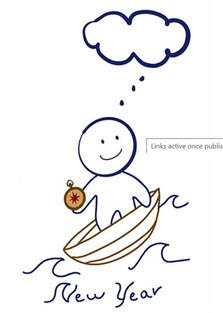| It’s almost 2022 – Is it time to embrace a new beginning? New Year’s is a time to reflect on the previous year and decide how you want to approach the next year. New Year’s resolutions give you an opportunity to hold yourself accountable to trying to fulfill your goals and reach your dreams. An individual must embrace both the reflection and the planning in order to make meaningful personal changes. |
| Therapy is a resource that can help you. Luckily, the stereotype is shifting from “counseling must be a secret” to “counseling is helpful.” People attend therapy for many reasons. Each reason is unique and important to that individual. Let’s explore some Frequently Asked Questions to help make the beginning of therapy a positive experience for you… so you can choose to embrace 2022... with the support you need: |
A: Feelings of sadness and anxiety are parts of a range of normal emotions. Even though your feelings might not meet the criteria for a clinical diagnosis, sometimes people need help managing these emotions. The therapist helps by understanding how you are feeling, what you are thinking, and supporting you in making necessary changes to fix any current issues (such as relationship problems, building confidence, managing priorities, and understanding your reaction to triggers, as well as processing your triggers).
Q: What types of problems can I get help with in counseling?
A: Therapy helps with a variety of issues, from non-clinical issues (i.e. personal growth, goal setting, motivation, building self-esteem, stress management, relationship issues, grief) to treating clinical diagnoses (i.e. major depression, generalized anxiety, PTSD, personality disorders, adjustment disorder, substance abuse, and many others).
Q: What types of people go to therapy?
A: Anyone can attend therapy: kids/teens/adults, individuals/couples, singles/married/parents/divorced or separated/widowed, any race or nationality, any religion, any financial status, any gender, any political affiliation, anyone in need of help that is willing to accept help.
Q: What does it feel like to be client?
A: Everyone has different experiences. It will probably be a bit awkward during the initial session because you are simultaneously sharing personal information with a new person and also assessing the therapist’s ability to try to understand you and care for you. It can be a weird experience to be the center of attention and have the session be all about you. It can, and should, also be supportive. That support should leave you feeling validated, where you experience the therapist’s kindness and empathy.
Q: How do I find a therapist that is a good fit for me?
A: Great, important question! Research shows that 75-90% of therapeutic effectiveness is due to the connection and therapeutic relationship between client and counselor. The goal is to believe you can trust the process to reaching your therapeutic goals with the therapist you choose. Finding the counselor that is best for you includes a combination of: 1) research – gather the information available about the therapist and their counseling approach (website, articles, reviews, word of mouth). 2) communication – ask questions that are important for you to know; listen to how the therapist sounds/responds. 3) trust your instinct – defining how or why a person “clicks” with you is a feeling more than a formula.
Author
Bree Winkler is a licensed professional counselor in Atlanta, GA. Bree helps clients manage anxiety, depression, anger, and relationship issues.


 RSS Feed
RSS Feed